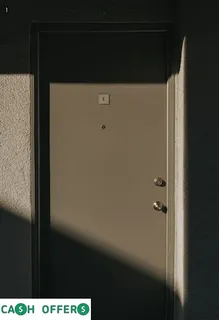Squatting in Illinois is a complicated issue for landlords and homeowners. It is important to understand the legal rights that squatters have in the state of Illinois in order to protect one’s property and make sure that any removal of a squatter is done legally.
Squatter’s rights are applicable when an individual moves into a property without permission from the owner and has been living there for an extended period of time. In Illinois, if a squatter has lived on the premises for more than seven years, they may be able to claim adverse possession of the property, meaning they have a legal right to live there.
It is also possible for squatters to gain legal title after living on the property for twenty years. Knowing how long squatters must occupy a space before being granted legal rights can help landlords and homeowners determine whether or not it is wise to pursue eviction proceedings.
Additionally, landlords must take certain steps in order to successfully evict a squatter from their property such as giving them proper notice or obtaining an official court order. Understanding these laws can ensure that landlords and homeowners are able to protect their investment while still adhering to state regulations concerning squatters’ rights in Illinois.

In Illinois, squatters may gain legal ownership of a property under certain conditions. Depending on the amount of time they have been living in the property and if they can show proof that they have been making improvements to it, a squatter may be able to assert their rights over the land.
If a squatter has been living in a residence for at least seven years without interruption, they can make a claim of adverse possession and potentially become the rightful owner of the residence. Additionally, if they can show evidence that they have made substantial improvements to the property and paid taxes on it for at least seven years, this could also qualify them as an owner.
The law is complex and varies from state to state so it’s important for landlords and homeowners to understand what rights squatters may have in Illinois before taking any action against them.
Navigating the eviction process for squatters in Illinois can be daunting for landlords and homeowners. It is important to understand that squatter's rights are protected by local laws and must be respected.
In the state of Illinois, squatters have certain rights that cannot be ignored or violated. Landlords must take appropriate steps to protect their property and interests while respecting these rights.
To begin, it is necessary to clearly identify a squatter and prove they are living on the property without permission. This can be done through various forms of proof such as utility bills or mail addressed to the individual at the address in question.
Once this has been established, landlords must provide proper legal notice informing the squatter that they must vacate the premises within a certain period of time. The notice should also include information about how to dispute the eviction if necessary.
If this does not work, then landlords may have to pursue more formal legal action in order to regain control of their property and remove any squatters from the premises.

Protecting your property from squatters in Illinois is a complex and nuanced process. Depending on the nature of the squatter’s occupancy, eviction may not always be possible.
As such, it is important for both landlords and homeowners to understand the laws governing squatters in Illinois before taking action. In general, squatters are defined as individuals who occupy a property without any legal right or permission from the owner.
This often occurs when a tenant has vacated the property without notice, or when an individual has moved onto a vacant property with no apparent owner. It is essential to act quickly if you believe a squatter has illegally occupied your property, as there are certain steps that must be taken if you wish to legally remove them from your premises.
First, you should make sure that all legal requirements have been met; this includes providing written notice of intent to evict and filing an eviction lawsuit in court if necessary. Additionally, it is important to be aware of any applicable local laws regarding squatting that may affect how you proceed; for example, some cities have ordinances designed to protect tenants from wrongful evictions or allow occupants certain rights even if they do not have a formal lease agreement in place.
Understanding these laws can help ensure that your rights as a landlord or homeowner are respected while also protecting your property from squatters.
Learning about squatting in Illinois can be daunting, but there are free resources available to help landlords and homeowners understand their rights. The Illinois Tenant Union is an invaluable resource with information on laws, regulations and best practices for dealing with squatters.
Additionally, the Illinois Bar Association provides a wealth of information on property law and tenant rights across the state. Furthermore, many local libraries have books and legal documents that provide detailed information about squatting in Illinois.
With these resources at hand, landlords and homeowners should be able to gain an understanding of the various laws and regulations surrounding squatter’s rights in the state. Additionally, it is always a good idea to consult with a qualified attorney who specializes in landlord-tenant law for assistance when dealing with any legal issues regarding squatting in Illinois.

Understanding adverse possession in Illinois is a key component of protecting one's property rights. Adverse possession is a legal process whereby a person who has occupied a property for an extended period of time can gain rightful ownership of that land.
In the state of Illinois, the claim must meet certain requirements in order to be valid. Landlords and homeowners alike should be aware of these requirements in order to maximize their time and money benefits from an adverse possession claim.
Illinois law requires that the claimant demonstrate exclusive, continuous and open occupation of the property for at least 20 years before filing for an adverse possession claim. Additionally, the claimant must pay all taxes owed on the property and demonstrate that they have been using it as if they were its owner during this period.
Furthermore, it is important to note that squatters cannot make an adverse possession claim unless there has been no dispute over ownership rights during their occupancy of the property. Taking into account all these factors can help ensure landlords and homeowners understand their rights when it comes to dealing with squatters and making use of an adverse possession claim in Illinois.
If you're a landlord or homeowner in Illinois, understanding the laws and regulations surrounding squatter's rights is crucial. Through a demo and our comprehensive guide, you can learn more about protecting yourself from potential squatters.
Our guide covers topics such as legal definitions of squatting, how to proceed with an eviction, and the resources available for landlords and homeowners to protect their property. This will help provide peace of mind when it comes to your real estate investments.
With our demonstration, we provide detailed information on the process necessary for evicting a squatter from your home or rental property. By signing up now, you'll get more insight into how to handle any situation that may arise as well as tips on how to prevent squatting in the first place.
Don't wait any longer - sign up today to get started on learning more about understanding squatter's rights in Illinois!.

When discussing squatter's rights in Illinois, it is important to understand the term "color of title" and how it applies to adverse possession claims. Generally speaking, color of title refers to a situation where a person has an apparent ownership claim over a piece of real estate, but without any legal basis for their claim.
In Illinois, color of title can be established if someone has been in possession for at least 20 years and has paid taxes on the property during that period. To successfully establish adverse possession rights under color of title, the claimant must show that they have actually occupied the property, improved the property with their own funds or improvements made by others on their behalf, and can prove actual payment of taxes for a period of at least 20 years.
Furthermore, the claimant must have had an open and notorious possession meaning that they openly conducted activities consistent with being in control of the land. If all these criteria are met, then adverse possession may be established even though there is no legal basis for claiming ownership.
Being aware of the benefits and consequences of putting your portfolio on squatter's rights in Illinois is essential for landlords and homeowners. Squatter's rights, also known as adverse possession, is when a person occupies an unoccupied property without permission from the owner for an extended period of time.
In Illinois, there are certain requirements that must be met in order to obtain legal title to the property, including living on the property openly and continuously for at least 20 years. While it may seem like a beneficial situation, there are various risks associated with allowing someone to live on your property without your knowledge or consent.
These risks include financial losses due to damage done to the property or having to pay back taxes, as well as personal safety issues that may arise from having an unknown individual living on your land. Additionally, you may have difficulty finding tenants if potential renters know that squatters were previously occupying the space.
It is important to understand what squatter's rights entail in Illinois before making any decisions about your portfolio so that you can make sure you are adequately protected against these potential risks.

When it comes to understanding the legal rights of tenants and squatters in Illinois, there are some key distinctions that landlords and homeowners must know. While traditional tenants have legal protection under the state's landlord-tenant laws, those same rights do not extend to squatters.
Squatters are people who occupy a property without permission or legal authority, yet they can still assert certain rights under certain circumstances. In Illinois, squatter's rights may include access to public utilities such as electricity and water; the right to recover personal items from the property; and if a squatter has been on the property for an extended period of time, they may even be able to claim ownership of it through adverse possession.
It is important for landlords and homeowners in Illinois to understand these differences when it comes to tenant vs. squatter rights so they can better protect their interests.
When it comes to understanding squatter's rights in Illinois, one of the most important legal implications that landlords and homeowners need to be aware of is the responsibility of paying property taxes. Squatters have a right to inhabit a property without permission or rent, which means they also have the same obligations as any tenant when it comes to paying property taxes.
Property owners are ultimately responsible for making sure all taxes are paid in full and up-to-date, even if there is an uninvited tenant living on their land. It is important for landlords and homeowners to familiarize themselves with their local tax laws so that they can be aware of any applicable regulations related to squatters and their taxation responsibilities.
Additionally, some states may have specific exemptions or programs that allow squatters who meet certain criteria to pay reduced taxes, so it is essential for homeowners to research their state's policies before taking any action against a squatter found on their property. Understanding the legal implications related to taxation as well as any other relevant laws can help landlords and homeowners better protect themselves when dealing with squatters in Illinois.

Adverse possession laws in Illinois present both advantages and disadvantages to homeowners or landlords who may receive ownership of land due to a squatter’s residency. On the plus side, a person who has held continuous occupancy on another person’s property for a certain period of time may have the right to take legal ownership of the land through adverse possession.
This law saves landlords and homeowners from having to go through costly legal disputes with squatters that could take several years to resolve. On the other hand, this law can be abused by those seeking to unlawfully acquire properties without compensating the original owners.
The relevant statutes are often complicated and subject to interpretation, so it is important for those affected by adverse possession laws in Illinois to understand their rights and responsibilities under the law.
In the state of Illinois, squatting is a practice that has been around for many decades. Squatting is defined as occupying a property without the legal right to do so, and it is typically done in an attempt to secure living arrangements without paying rent or going through legal channels.
While this practice can be seen as controversial due to its lack of legality, some states have come to recognize it in certain circumstances. In Illinois, squatting is allowed under certain conditions—such as when the owner of the property has abandoned it for an extended period of time or if there is evidence that the squatter has made significant improvements to the property—and understanding these conditions from both a landlord and homeowner perspective is important in navigating this complex issue.
Ultimately, allowing squatting in Illinois comes down to providing people with access to basic necessities like shelter and food while still protecting landowners from exploitation.

Adverse possession is a legal process in which an individual, known as a squatter, can gain ownership of a property by continuously occupying it for a certain period of time. In Illinois, the squatter must live on the land or property openly and notoriously for 20 years in order to obtain legal title.
Furthermore, all taxes and assessments due on the property must be paid during those 20 years. The adverse possessor must also demonstrate that the possession was continuous and uninterrupted throughout that time, meaning occupancy cannot have been broken up or suspended in any way.
Finally, if there is an existing home on the land or property, the squatter cannot take over without actually living inside as continued occupancy of an uninhabited structure does not qualify as possession under Illinois law. It's important to note that even if a squatter meets all these requirements, they will still not be granted title if the rightful owner takes action to reclaim their property before the 20-year statute has expired.
Establishing title to a property is often a complex and legally challenging matter. In the state of Illinois, adverse possession law can be used to help landlords and homeowners gain legal rights over a piece of land even if they do not hold the title.
Such rights are commonly referred to as squatter's rights. To understand how this works in Illinois, it is important to understand the various elements that must be met for adverse possession to apply.
Firstly, it must be established that the individual claiming ownership has been in lawful possession of the property continuously for at least 20 years (735 ILCS 5/13-101). This means that someone trying to claim squatters' rights must have lived on or utilized the property in an open, notorious, exclusive and hostile manner for two decades.
Further criteria such as payment of taxes on the property may also be required to make a successful claim. It is therefore essential for landlords and homeowners to familiarize themselves with pertinent laws in order to protect their interests when dealing with squatters' rights claims in Illinois.

When it comes to exercising squatter's rights in Illinois, understanding the laws that govern adverse possession can be complicated. Adverse possession is a legal concept that allows someone to gain title to property they possess and use without permission of the legal owner.
In order for a person to successfully claim property under adverse possession in Illinois, they must meet certain criteria. These include occupying the land for at least 20 years, keeping their occupancy open and notorious, paying all taxes associated with the property, and having actual or constructive possession of the land.
It should also be noted that squatters cannot make improvements on the property until after they have acquired title. Additionally, any improvements made by squatters may be subject to a lien for costs incurred by the owner.
It is also important to understand how different scenarios can affect your rights when claiming property through adverse possession in Illinois. For example, if you are aware of an existing tenant on the premises before taking action to acquire title, you may not be able to exercise squatter's rights in that case.
Furthermore, if a court finds that your intention was not peaceful when attempting to gain title to a piece of property through adverse possession, then your case could be dismissed altogether. As such, it is essential for landlords and homeowners alike to familiarize themselves with all relevant laws when exploring different scenarios regarding adverse possession in Illinois.
It is important for landlords and homeowners in Illinois to understand the statutes and regulations surrounding the acquisition of title through squatting. Squatting involves occupying a piece of property that one does not have legal permission to occupy in order to claim ownership.
In Illinois, a squatter may gain title over time if they can show that they have been openly occupying the land or house continuously with the knowledge of the true owner, and have made improvements on or paid taxes on the property for seven continuous years. To be considered legally valid, any claims must also be registered with the county recorder so that it is visible to all parties involved.
Moreover, squatters are protected from eviction by law except when it can be proven that they were aware of their lack of legal rights before taking occupation. It is essential to familiarize oneself with these laws and regulations in order to ensure a proper understanding of squatter's rights in Illinois.
Yes, it is possible to evict a squatter in Illinois. In order to do so, however, landlords and homeowners must understand the legal framework surrounding squatters' rights and the eviction process.
Squatters have certain rights that must be respected before any eviction can take place; understanding these rights can help landlords and homeowners navigate the process of evicting a squatter successfully. First, it is important to understand what constitutes a squatter in Illinois: an individual who has been living on another person's property without permission or payment for more than seven days.
For any eviction to occur, there must be proof that the individual meets this definition and that they are unlawfully occupying the property. Once this has been established, landlords or homeowners may begin filing paperwork and following court procedure to complete the eviction process.
It is important to note that Illinois law protects tenants from sudden evictions and requires proper notice before proceeding with an eviction. In some cases, squatters may even have legal tenant status through "adverse possession," which grants them certain rights as a tenant under state law.
Understanding the complexities of the law concerning squatters' rights will help landlords or homeowners ensure that they are within their legal rights when taking action against a squatter in Illinois.

The new Squatter Law in Illinois is an important piece of legislation that has been enacted to protect both landowners and squatters. Squatters are people who occupy property without the permission or knowledge of the owner, often without payment of rent.
This law provides both sides with protection by outlining legal procedures for resolving disputes between landlords and squatters. Under the new law, a squatter cannot be removed from a property unless certain conditions are met such as providing proof of occupancy or proof that occupancy was done in good faith.
Landlords must also provide written notice to squatters informing them of their rights and obligations under the law before any action can be taken against them. Additionally, the law states that if a squatter has been living on property for seven years or more, they may gain legal possession of it through adverse possession proceedings.
Finally, if a landlord decides to pursue legal action against a squatter, they must do so within 45 days after receiving written notice from the squatter. This new Squatter Law in Illinois is designed to ensure both parties' rights are protected while providing an accessible resolution process for disputes between landlords and squatters.
In Illinois, squatters rights are based on the concept of adverse possession. Under this doctrine, a squatter may gain legal title to another person's property if the squatter has been in exclusive and continuous possession of the property for a certain period of time.
In order for this claim to be successful, the squatter must prove that they have been living in the property openly and notoriously, peacefully and continuously for at least 20 years. The squatter must also pay all real estate taxes associated with the property during their period of occupation.
Squatters rights in Illinois only apply to dwellings or land used as such; they do not apply to commercial properties or buildings used for business purposes. Landlords and homeowners should understand that squatters who meet the conditions outlined above can obtain title to their property without their consent or knowledge which could lead to costly legal battles in court over ownership rights.
It is important for landlords and homeowners to familiarize themselves with these laws before entering into any rental agreement or transfer of ownership.
In Illinois, squatters rights are an area of law that can be difficult to understand. Squatter’s rights, or adverse possession, refer to a legal concept that allows individuals who have possessed another’s land for a certain amount of time to gain title to the land.
In Illinois, in order for squatter’s rights to be established, the individual must have continuously occupied the property for at least 20 years and must also meet certain other criteria. This is the shortest period of time necessary for squatter's rights to become effective in Illinois; however it is important to note that there are some cases where a shorter period may be sufficient.
It is important for landlords and homeowners in Illinois to understand their rights when faced with squatters on their property, as well as the implications of allowing a squatter to remain on their property beyond this 20 year period.
A: To establish hostile possession, the squatter must have uninterrupted physical occupation of the property for at least seven years without permission from the owner. Exclusive possession requires that the squatter has exclusive control over the land for at least 20 years along with payment of taxes for that time period. If these requirements are not met, then when a Notice to Quit is served, an eviction action may be brought against them.
A: In order to establish squatters rights in Illinois, one must satisfy the requirements of hostile possession and exclusive possession. This means that the squatter must have actual physical possession of the property and must be openly exercising control over it for a period of at least 20 years without any interruption or disturbance from the true owner. If these requirements are satisfied, the squatter may not be evicted even if they have received a Notice to Quit.
A: In Illinois, a Tenancy at Will is an agreement between a landlord and tenant that provides the tenant with possession of the rental property but lacks any written lease or other legal agreement. The tenant has no right to stay in the property beyond the period allowed by the landlord, and may be evicted with only a Notice to Quit. To establish hostile possession and exclusive possession under Illinois law, the tenant must have had actual physical occupancy for 10 years without interruption or objection from the landlord.